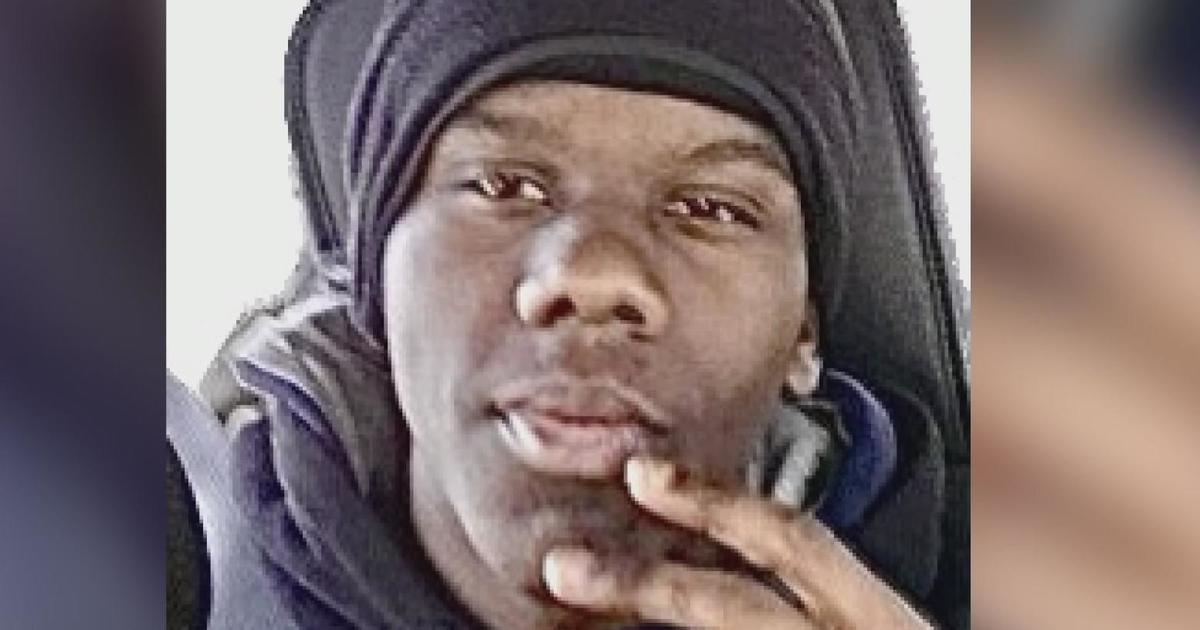Dems Divide Over House GOP Bill Restricting Syrian Refugees
WASHINGTON (KDKA/AP) - The White House labored Thursday to keep Democrats from joining an embarrassing rebuke of President Barack Obama as House Republicans pushed legislation toward approval that would erect fresh hurdles for Syrian and Iraqi refugees trying to enter the U.S. Obama promised a veto, but his top aides struggled to limit Democratic defections as last week's attacks in Paris showed signs of splintering the lame duck president's party.
The White House rushed chief of staff Denis McDonough and Homeland Security Secretary Jeh Johnson to the Capitol early Thursday in an attempt to win over House Democrats. Democratic aides said Rep. Sean Patrick Maloney, D-N.Y., had a forceful exchange with Johnson, saying that opposition to the bill would be a terrible vote for Democrats that could cost them seats in next year's elections.
With the House's 246 Republicans expected to solidly support the legislation, the administration was eager to keep the final tally for the bill below 290 - the number required to override a veto if all lawmakers vote. Democratic aides said they worried that 60 or more Democrats would abandon the lame-duck president and support the legislation out of concerns about how voters might interpret a vote opposing stiffer restrictions for Syrians to come to the U.S.
In a sign of conflict within their party, senior House Democrats said they were not pushing rank-and-file lawmakers to oppose the bill.
"I've said to them from the start, 'Nobody's asked you to do anything. Do whatever works for you, for your district,'" House Minority Leader Nancy Pelosi, D-Calif., told journalists.
Local leaders have also weighed in on the issue.
"It's good to be sympathetic. It's just not good to be stupid," U.S. Rep. Mike Kelly, a Butler Republican, bluntly told KDKA political editor Jon Delano.
Kelly said taking in refugees makes no sense in the era of ISIS.
"The world is a completely different place. It is on fire right now. It is upside down," says Kelly.
"To be thinking now that the old model will work is very naive, and I think very irresponsible and reckless on our part."
Congressman Mike Doyle, who voted against the measure, said the current system works since it takes 18 to 24 months for any Syrian refugee to get in the country.
"Since 9-11, 200,000 Syrian refugees have applied to refugee status in the United States," he said. "Only 7,000 of those made it to an application process and interview process, and of the 7,000 interviewed, less than 2,000 were allowed in the country."
And Doyle says 98 percent of those were women and children. But Congressman Tim Murphy disagrees.
"We believe that more has to be done," he said, "and this bill basically says when the director of Homeland Security and the director of the FBI can sign off on this and say we do have a security system, then we can start moving refugees here."
Local members of the house split on party lines with Republican Congressmen Murphy, Bill Shuster, Mike Kelly and Keith Rothfus voting yes, and Democratic Congressman Doyle voting no.
Already some officials are pointing to a larger problem -- the ability of anyone with a European passport to enter the U.S. with little or no vetting because of a visa waiver program.
"Any one of those six terrorists that attacked France, if they had French passports, they could have flown into the United States, and nobody would have said boo to them," Doyle said.
The senate may deal with this issue, too, but no action is expected until after Thanksgiving.
And U.S. Rep. Keith Rothfus, a Sewickley Republican, called for a moratorium on refugees.
"When you have the FBI director testifying before the Homeland Security Committee that the federal government simply does not have the ability to conduct thorough background checks on all these refugees, I think you have to take a look at that," said Rothfus.
The bill was being debated less than a week after a burst of bombings and shootings killed 129 people in Paris, wounded many more and revived post-9/11 jitters in the U.S. and other countries. The Islamic State group has claimed responsibility for the attacks, which have also made the flood of Middle Eastern refugees a heated political issue in Europe.
The measure, which in effect would suspend admissions of Syrian and Iraqi refugees, would require the FBI to conduct background checks on people coming to the U.S. from those countries. It would oblige the heads of the FBI and Homeland Security Department and the director of national intelligence to certify to Congress that each refugee "is not a threat to the security of the United States."
On the House floor, Rep. Jim McGovern, D-Mass., attacked the bill as a measure that would shut down the admittance of all Syrians and Iraqis fleeing war-torn countries for the U.S.
"The fear, the anger, the prejudice and the isolationism that are driving the current debate on Syrian refugees remind me of some of the darkest and ugliest chapters of American history," said McGovern, a reference to U.S. moves to bar some fleeing Hitler before World War II.
"This appeals to the worst in the United States, protecting America?" responded Rep. Doug Collins, R-Ga. "This is a clear choice. The bill is protection, or not."
On the campaign trail, Democratic presidential candidate Hillary Rodham Clinton said the U.S. should welcome refugees from the region and bolster America's defenses and intelligence operations.
On the Senate floor, Majority Leader Mitch McConnell, R-Ky., who hasn't yet scheduled debate on the issue, said Thursday it is time "to press pause" so policy makers could decide whether adequate vetting procedures are in place, calling it "the most responsible thing for the administration to do right now."
Minority Leader Harry Reid, D-Nev., said he's been disgusted in recent days by the comments from Republicans and called it "fear-mongering and bigotry."
In a statement assuring a veto, the White House said the GOP bill would not improve Americans' security. It said the legislation "would unacceptably hamper our efforts to assist some of the most vulnerable people in the world, many of whom are victims of terrorism, and would undermine our partners in the Middle East and Europe in addressing the Syrian refugee crisis."
Currently, the refugee screening process typically takes 18 to 24 months and includes interviews, fingerprinting and database crosschecks by several federal agencies. Syrians undergo additional screening involving data from the U.N. Refugee Agency and interviews by Homeland Security Department officials trained to question Syrians.
Republicans said that with Islamic State militants openly threatening to attack the U.S. in a recent video, that system isn't sufficient to ensure Americans that refugees entering the United States aren't extremists bent on attacking the country.
"The status quo is not acceptable," said House Homeland Security Committee Chairman Michael McCaul, R-Texas, who wrote the bill with Rep. Richard Hudson, R-N.C. "The American people want us to act in light of what's happened."
The Obama administration wants to increase the 70,000 refugees to be admitted from around the world this year by 10,000, with much of the increase for Syrians.
The White House said that of 2,174 Syrians admitted to the U.S. since the Sept. 11, 2001 attacks, none has been arrested or deported because of allegations they harbored extremist ambitions.
Join The Conversation On The KDKA Facebook Page
Stay Up To Date, Follow KDKA On Twitter
(TM and © Copyright 2015 CBS Radio Inc. and its relevant subsidiaries. CBS RADIO and EYE Logo TM and Copyright 2015 CBS Broadcasting Inc. Used under license. All Rights Reserved. This material may not be published, broadcast, rewritten, or redistributed. The Associated Press contributed to this report.)



